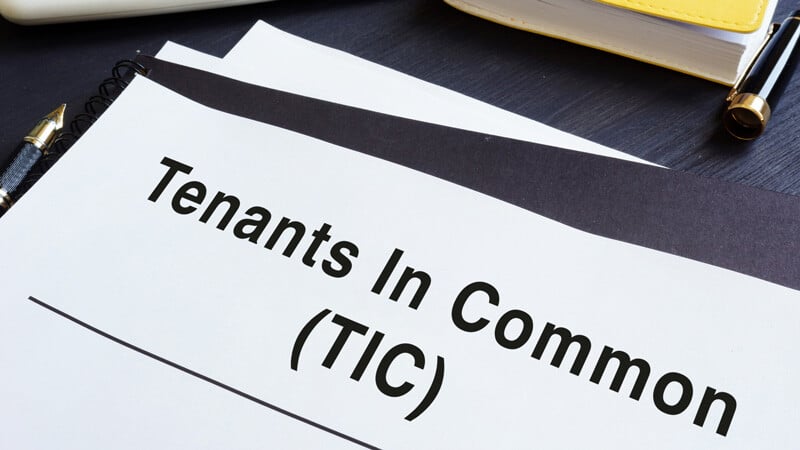Refinancing a Tenancy-in-Common (TIC) Property

Refinancing can be a necessary strategy for investment property owners entering into a Tenancy-in-Common (TIC) agreement. However, due to the setup of a TIC, refinancing can be highly complex and require multiple steps. Understanding what’s involved in the process can help determine if refinancing the property is feasible.
Recording Tenancy-In-Common (TIC) Agreements

When structured correctly, tenancy-in-common agreements (or TICs) can offer a path to flexible real estate ownership. Understanding how TIC agreements operate also requires knowing what needs to be in writing. And one of the questions about “in writing” requirements rests on whether TIC agreements need to be recorded.
Tenancy in Common (TIC): What It Is & How It Works

Many types of investment vehicles exist today, each one offering structures and benefits that make them of interest to investors. For those who want to buy a property with a friend or relative, they can enter a tenancy in common (TIC) arrangement, which allows for the shared ownership of a real estate asset.
Tenant in Common and Divorce: What You Need to Know

Divorce can have profound impacts on many aspects of your life, from living arrangements to financial and legal issues that need to be sorted out.
How Do Tenants In Common File Taxes?

You may be familiar with the structure of a tenant-in-common arrangement, better known as a TIC. Under a TIC structure, each co-tenant or co-owner has an undivided, fractional share in a particular property.







